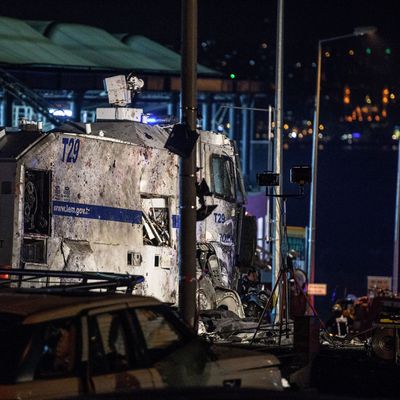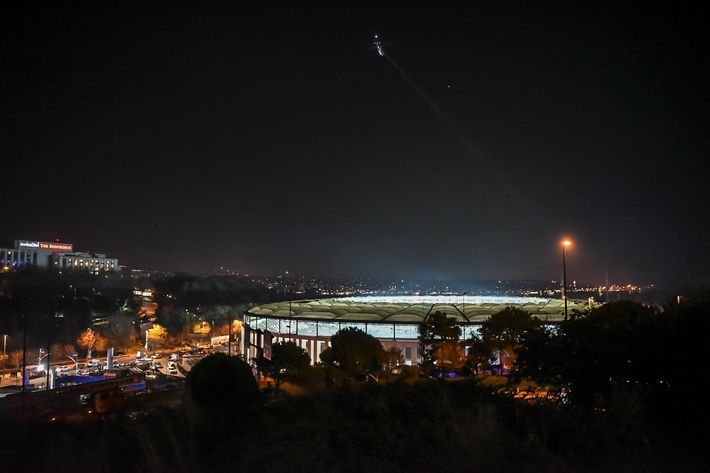
Istanbul became the setting of yet another horror on Saturday night when Kurdish militants conducted a twin bomb attack outside a large soccer stadium, killing 38 people and injuring at least 160. The co-ordinated attacks, which utilized a car bomb and suicide bomb, appear to have been targeting a bus full of riot police officers roughly two hours after a soccer match between two popular teams had ended at the Vodafone Arena in Istanbul’s Beşiktaş district. The Guardian reports that 31 officers and seven civilians were killed. The TAK, or Kurdistan Freedom Falcons, later claimed responsibility for the attack, saying two of their members had died in the explosions. The TAK is considered a splinter group of the PKK Kurdish separatist group, which has been fighting the Turkish government for decades. A once-promising peace process between the Kurdish militants and Turkey broke down 18 months ago; tension and violence between the Turkish government and the PKK, as well as many of the country’s Kurdish minority population, have been on the rise ever since.
The government of Turkish president Recep Tayyip Erdoğan, which has already been conducting a widespread and heavily criticized crackdown and purge across Turkish society following a failed coup attempt in July, has also recently made several controversial arrests of key Kurdish politicians in the country. Those politicians — including, arguably, the most popular Kurdish leader in Turkey — were accused of supporting the PKK, and their arrests have only made the tensions between Kurds and the Erdoğan regime worse.

Süleyman Soylu, Turkey’s interior minister, vowed revenge against the perpetrators of the bombing at a funeral for some of the slain officers on Sunday. “This blood will not be left on the ground, no matter what the price, what the cost,” he warned.
The Erdoğan regime has a lot of enemies, however. In addition to its conflict with Kurdish militants, Turkey has also been fighting ISIS both inside its borders, following several devastating terrorist attacks on Turkish civilians, and south of the border in Syria, where the Turkish military and its Syrian rebel allies have been targeting ISIS and Syrian Kurdish fighters (who are, in turn, also U.S. allies in the fight against ISIS).
In July, the Turkish regime survived a failed coup by an anti-Erdoğan faction of the Turkish military in which 300 people were killed. Erdoğan has blamed the coup on Turkish exile Fethullah Gülen, a claim Gülen has denied. Whoever was behind the coup, Erdoğan has used it to consolidate his power over the country, purging tens of thousands of people from the military, government, and academic institutions, as well as conducting a widespread crackdown on opposing political forces and media organizations.
Since Saturday’s bombings primarily seemed to target law-enforcement personnel instead of civilians, that makes it more likely to have been a Kurdish militant attack rather than ISIS, which typically focuses its carnage on the civilian population. Unfortunately for Istanbul’s residents, the city has become a regular host to attacks from both militant groups; tourism and commerce in the city have dropped precipitously, as a result.






























